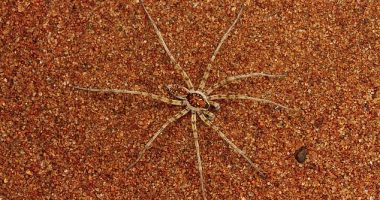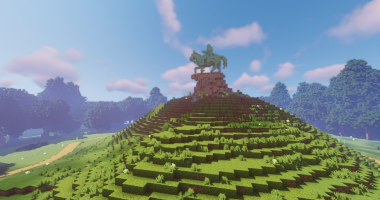A GIANT meat-eating dinosaur that lived 120 million years ago has been found – and it’s sparked a scientific mystery.
Part of the skeleton of the long-extinct carnivore was found by scientists who say it would’ve chased down its prey.
The dinosaur is officially named Riojavenatrix, but has been nicknamed “Britney” by the team who worked on it.
It was found in La Rioja, Spain, and is part of a group of dinosaurs known as spinosaurids.
Scientists think it would’ve been between 23 and 26 feet long and weighed 1,500kg – just less than a Toyota Camry.
“The new genus and species, which we have nicknamed Britney, is based on a partial skeleton,” said Erik Isasmendi, a researcher at the University of the Basque Country.
“Consisting of the remains of the hind limbs (femur, tibia, fibula, ankle bones and phalanges of the foot), the pelvis (pubis and ischium), in addition to vertebral remains.
“Its combination of anatomical features make it unique and that means it can be differentiated from other spinosaurids.”
Spinosaurids were medium to large dinosaurs with low and elongated skulls.
Their jaws had conical crocodile-style teeth, and “long, robust” arms with three fingered hands – each ending in “powerful claws”.
Most read in Science
Some members of the species also had a dorsal sail – a spiny fin-like feature on its back.
Scientists believe that the Iberian Peninsula – where Britney was found – was home to a large and diverse array of carnivorous dinosaurs.
This has left scientists puzzled, with researchers vowing to investigate how they managed to all live alongside each other.
“How did these species coexist with each other?,” asked Elena Cuesta, a researcher at the Museum of Palaeontology Egidio Feruglio.
“Questions like these are prompting us to consider again future, more detailed studies into spinosaurids, which are sure to yield significant results.”
Scientists say that the group of spinosaurids would have originated in Western Europe, during the Upper Jurassic period.
Remains of the species have been found in Spain, Portugal, and the United Kingdom.
Why did the dinosaurs die out?
Here’s what you need to know…
- The dinosaur wipe-out was a sudden mass extinction event on Earth
- It wiped out roughly three-quarters of our planet’s plant and animal species around 66million years ago
- This event marked the end of the Cretaceous period, and opened the Cenozoic Era, which we’re still in today
- Scientists generally believe that a massive comet or asteroid around 9 miles wide crashed into Earth, devastating the planet
- This impact is said to have sparked a lingering “impact winter”, severely harming plant life and the food chain that relied on it
- More recent research suggests that this impact “ignited” major volcanic activity, which also led to the wiping-out of life
- Some research has suggested that dinosaur numbers were already declining due to climate changes at the time
- But a study published in March 2019 claims that dinosaurs were likely “thriving” before the extinction event











